
Self Care
Self-care is important. A little "you time" goes a long way!
When you take time to care for yourself, you are better able to care for your child. Even a few minutes of “you time” can help you to recharge so that you can parent at your best. Stress causes wear and tear on a person, inside and out. Keep these tips in mind next time you’re feeling overwhelmed.
- Stay Social. There will be times when you need to spend more time at home. That can take a toll. Reach out to loved ones and friends with a phone call or video chat. Keeping your distance from others doesn’t mean you need to go it alone.
- Sleep. When your little one lays down to rest, try to do the same. If he’s having trouble settling down, sing him a quiet song that you loved when you were small (one that calms you down, too).
- Use water to relax. As you’re bathing your child, soak your hands in the warm water and give yourself a little hand massage, taking long deep breaths as you do so.
- Keep a journal by your bed. Before you fall asleep, remember something funny, kind, or surprising that your child did today. Write a few lines that capture the memory. If you are feeling stressed or down, you can read through your memory journal.
- Fill your cup: Get a glass of water and find a comfy spot to sit. Let your child know, “I’m just going to sit and (read/think/breathe) while I drink this glass of water.” Explain that you’ll be available once the glass is empty. Children have difficulty keeping track of time, and this is a concrete way to help them understand you’re taking a few minutes to yourself.
- Turn on the tunes! Never underestimate the power of music to change the mood. Put together a playlist of songs that make you feel good. You might create different playlists for different moods (one to relax, one to energize, and so on).
- Get moving. Taking movement breaks throughout the day can help alleviate stress and keep you well. Even if you’re stuck inside, try a few small-space, body-weight exercises like squats, lunges, and arm-raises.
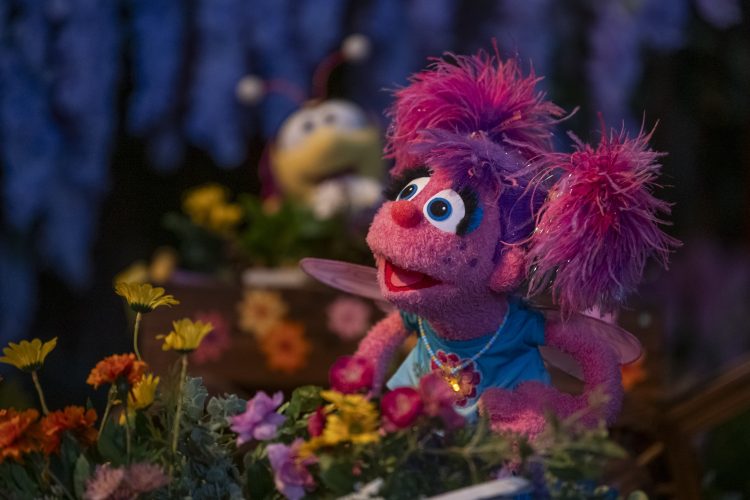
Watch and Play: Abby's Magical Beasties
Watch this episode and explore ways to extend the learning at home.
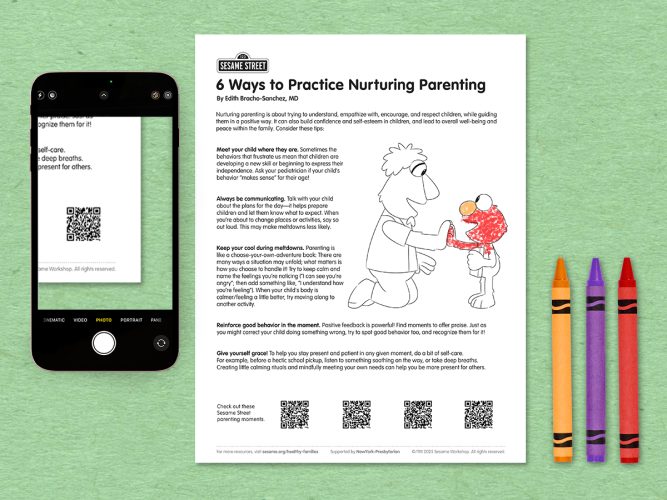
6 Ways to Practice Nurturing Parenting
Tips from a pediatrician on understanding, empathizing with, encouraging, and positively guiding children.
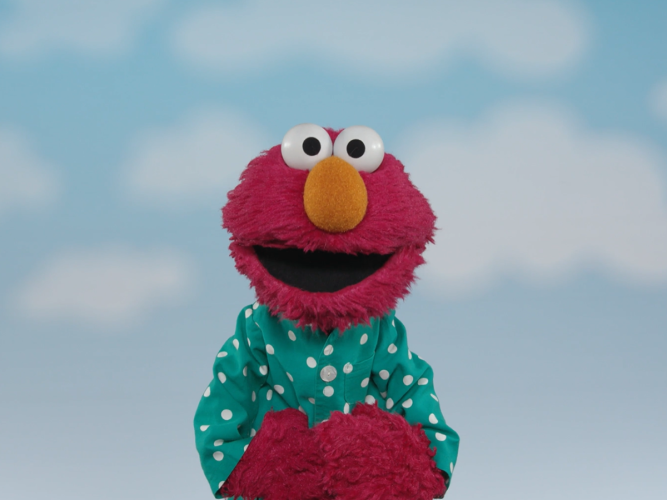
Listen, Feel, and See with Elmo
When children are in the hospital, this mindfulness game can help them soothe themselves.
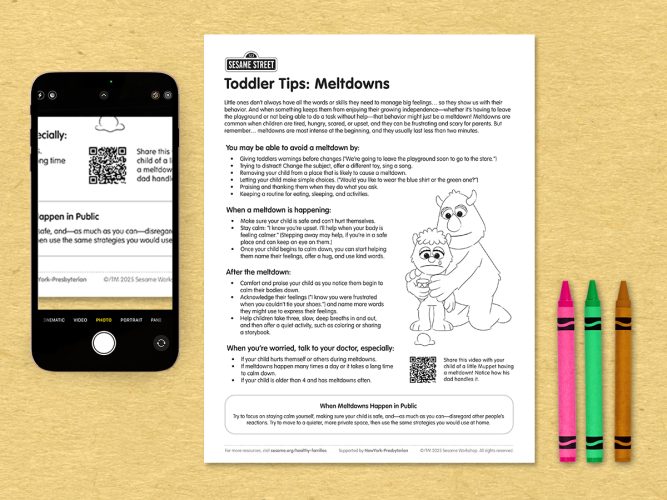
Toddler Tips: Meltdowns
Strategies for during and after a meltdown…and even some ways meltdowns might be avoided.
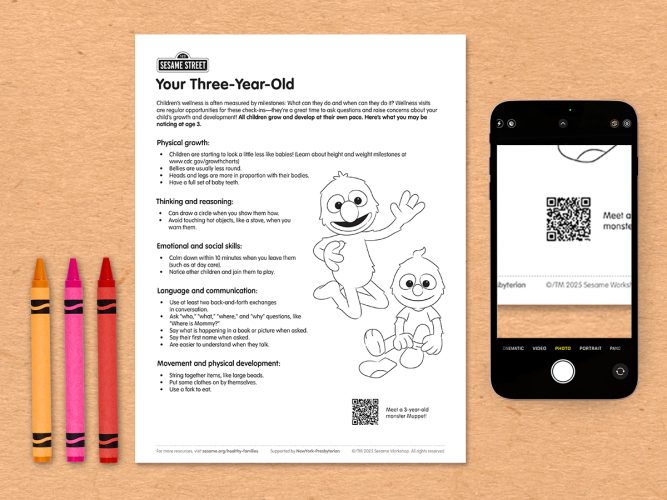
Milestones: Your Three-Year-Old
All children grow and develop at their own pace; use this chart to guide your expectations and observations so you can talk to your child’s pediatrician about questions or concerns.
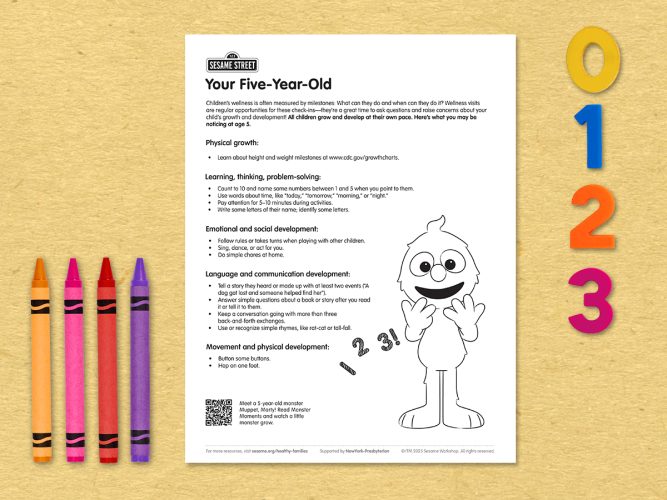
Milestones: Your Five-Year-Old
All children grow and develop at their own pace; use this chart to guide your expectations and observations so you can talk to your child’s pediatrician about questions or concerns.
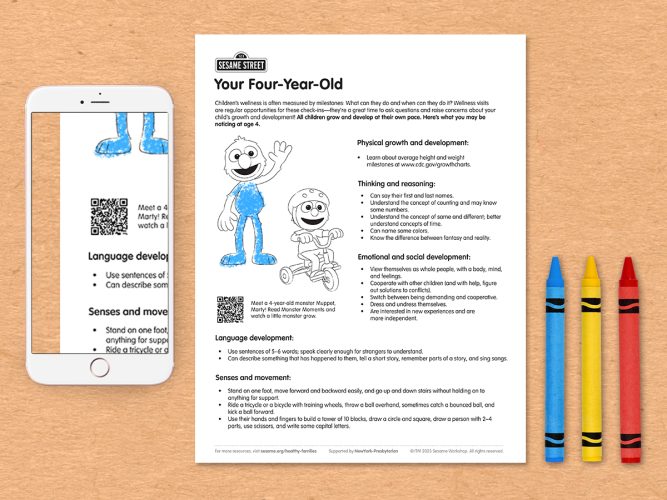
Milestones: Your Four-Year-Old
All children grow and develop at their own pace; use this chart to guide your expectations and observations so you can talk to your child’s pediatrician about questions or concerns.
